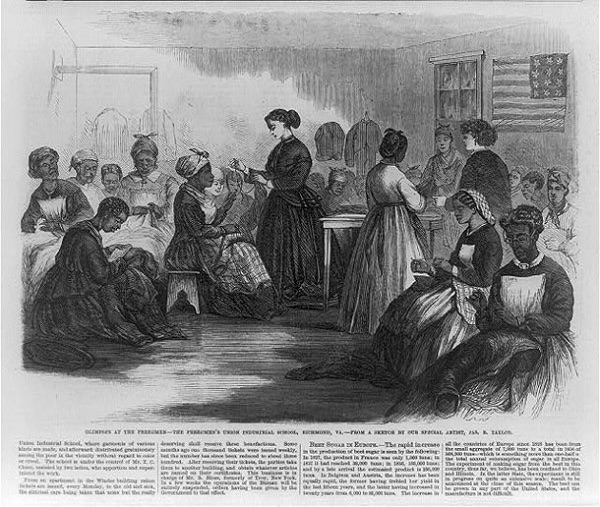|
Rebuilding the Southern EconomyThe Freedmen's Bureau was an agency created by the United States government in 1865, shortly before the end of the Civil War on March 3, 1865. Its primary purpose was to assist newly freed African American slaves in transitioning to freedom and citizenship, as well as to provide humanitarian aid and educational opportunities.The Bureau was headed by a commissioner, who was appointed by the President, and it operated under the authority of the War Department. One of the main functions of the Freedmen's Bureau was to provide assistance to newly freed slaves, including food, clothing, and medical care. The Bureau also helped African Americans find work, and it established schools to provide educational opportunities for the newly freed population. In addition, the Bureau provided legal assistance to African Americans who were being denied their rights, including the right to vote. The Bureau was also tasked with settling disputes between former slaves and their former masters. This was particularly important in cases where former slaves had been promised land or other resources as compensation for their years of forced labor. The Bureau helped to mediate these disputes and ensure that former slaves received what was rightfully theirs. Despite its noble mission, the Freedmen's Bureau was not without its problems. It was often understaffed and underfunded, which made it difficult to provide the necessary services to the millions of newly freed slaves. Additionally, many white Southerners were hostile to the Bureau and resented its efforts to assist African Americans. The Freedmen's Bureau was also plagued by corruption, as some Bureau officials used their positions to enrich themselves at the expense of the people they were supposed to be helping. In some cases, Bureau officials colluded with white Southerners to perpetuate the discriminatory practices of the past. Despite these challenges, the Freedmen's Bureau played a crucial role in the early years of Reconstruction. It provided vital support to newly freed slaves and helped to lay the groundwork for the eventual end of slavery and the full citizenship rights of African Americans. Today, the Freedmen's Bureau is remembered as an important chapter in the struggle for civil rights in the United States.
|
